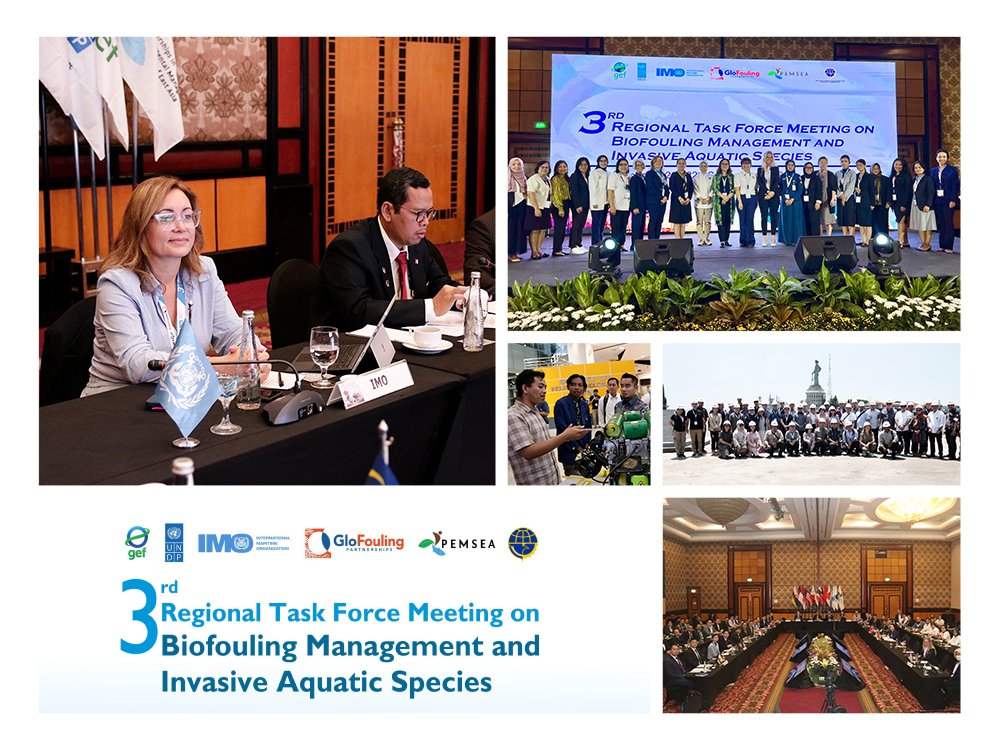Protecting the ocean’s biodiversity and reducing the threat of invasive aquatic species was at the core of discussions during the 3rd Regional Task Force meeting on BioFouling Management held Surabaya, Indonesia (20-23 September).
Over 40% of international trade passes through Southeast Asia. This exposes the region’s marine ecosystems to invasive species attached to shipping hulls and other equipment.
The taskforce adopted the regional strategy on biofouling management which sets out a clear action plan which includes promoting research and development and technology exchange in the region, the establishment of national biofouling governance, the development of sustainable financing mechanisms within national and region levels among other things. The meeting also discussed the importance of gender balance in the biofouling related maritime sector as part of Glofouling Partnerships key deliverables.
Participants were treated to a site visit at the PT PAL Indonesia shipyard, one of the largest dry docks in Indonesia. They also visited the Technology Institute of Surabaya (Institut Teknologi Sepuluh Nopember - ITS) to see first-hand how management practices and biofouling research are developed.
The event was organized by the Partnerships in Environmental Management for the Seas of East Asia (PEMSEA) as part of its commitment to GloFouling Partnerships project and was hosted by the Directorate General of Sea Transportation, Ministry of Transportation of the Government of Indonesia.
The meeting was attended by approximately 70 participants consisting of representatives from 12 countries from the region.
For more information about this project visit us here.
